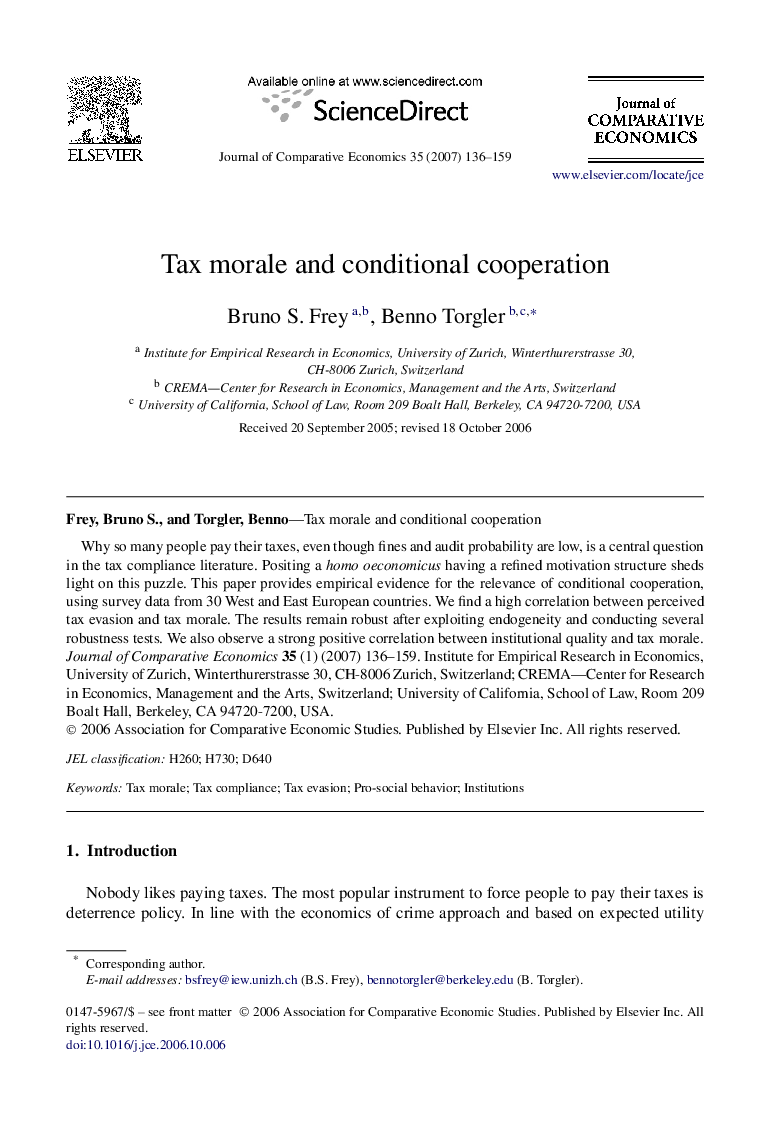| Article ID | Journal | Published Year | Pages | File Type |
|---|---|---|---|---|
| 5092573 | Journal of Comparative Economics | 2007 | 24 Pages |
Abstract
Why so many people pay their taxes, even though fines and audit probability are low, is a central question in the tax compliance literature. Positing a homo oeconomicus having a refined motivation structure sheds light on this puzzle. This paper provides empirical evidence for the relevance of conditional cooperation, using survey data from 30 West and East European countries. We find a high correlation between perceived tax evasion and tax morale. The results remain robust after exploiting endogeneity and conducting several robustness tests. We also observe a strong positive correlation between institutional quality and tax morale. Journal of Comparative Economics 35 (1) (2007) 136-159.
Related Topics
Social Sciences and Humanities
Economics, Econometrics and Finance
Economics and Econometrics
Authors
Bruno S. Frey, Benno Torgler,
